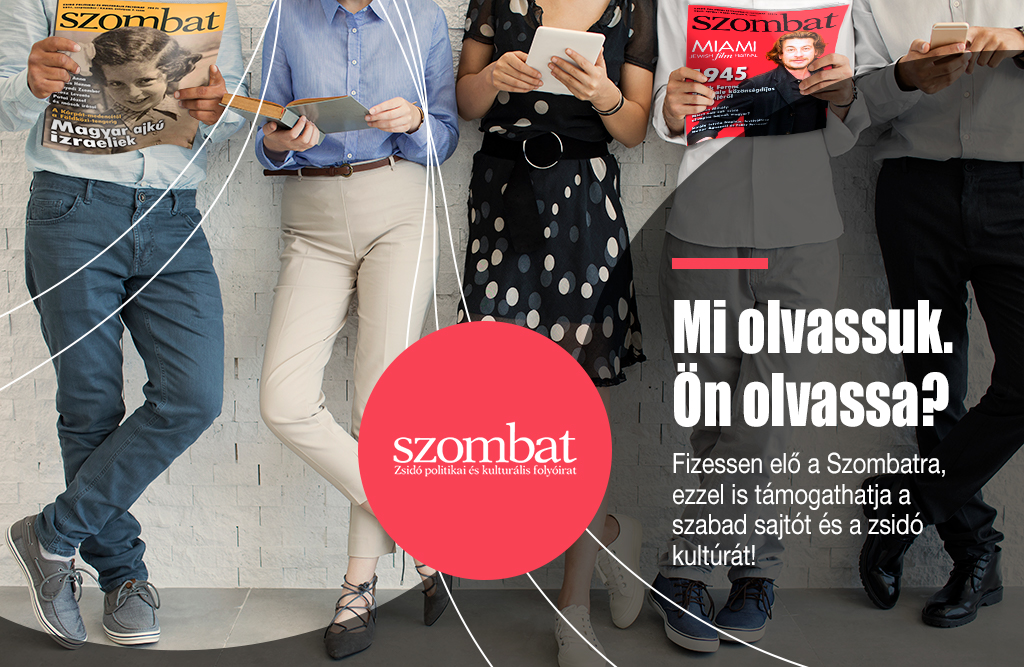Summary
Summary
In 1944 the children of Mór Lipót Herzog, the rich Jewish art collector were forced to flee the country and a significant part of his collection is now Kept in various Hungarian museums. Martha Nierenberg, one of Mr. Herzog’s children has been trying to get the paintings back from the state for more than twenty years. The case has been dealt with at Hungarian courts for three years, and recently Supreme Court decided to restart the trial. Péter Szakonyi sums up the recent history of the case.
At the assembly of the Official Jewish Community Ferenc Olti vice president called upon Gusztáv Zoltai executive director to resign because of his authoritarian and disorganized management style. The participants of the assembly were giving voice to similar complaints outside the meeting hall during the session breaks but were reluctant to express their critical opinion publicly, so the vice president was left alone with his suggestion.
Hews on compensation issues: 1. An agreement between the Official Jewish Community and the Hungarian state allocates a sum of 400.000 HuF (1740 US$) to all those who had lost their relatives (parents, children or spouses) as a result of the nazi occupation of the country. 2. The Official Jewish Community in Hungary is considering joining the so called “golden train trial” started in America. So far they have been collecting relevant data. The so called “golden train” was carrying valuables confiscated from Hungarian Jews and it was seized by the American troops in 1945. Its contents were auctioned off in America. The items were never returned to the original owners, so a group of these have launched a case against the United States. 3. Payments at Future Fund have significantly slowed down. Founded by the German state this fund pays a compensation of 10.000 DM to all those who had been made to do forced labour or slave work, or were put in a ghetto anywhere during the World War II. Some claim that the cause of slower payment is the fact that the Conference of Material Claims Against Germany, in charge of inspecting compensation, found that two of the Hungarian Jewish organizations were not thorough enough when issuing documents on how long people had stayed in the ghetto.
“The Blood Pump of Hebron” is the title of a report on the history and the difficult life of the Jewish community in this ancient city.
In our “World” section we try to examine the causes of anti-Zionism that has taken over in the Academic world in the United States.
Our section on women’s issues “Esther’s bag” reports on a conference on “The Social Gender: Nation, Memory and History”. The section titles are: “Gender and Canon”, “Gender and Women’s Writing” and “Gender Stereotypes”. Another article in this section describes a different conference, organized by the Jewish Orthodox Feminist Alliance in America. The focus of this meeting was how to find an orthodox legal justification for allowing women to read from the Torah, and what effect the “tsniut” (purity, modesty) has on orthodox women in terms of their religious and sexual life and public activities, as well as on their image of themselves.
Gábor T. Szántó’s short story “Inaugural” offers a satirical picture of an election within the Jewish community.
Attila Novák ponders over a film by Costa Gavras, “Amen”. “After ail in such an extreme situation there is only one heroic and uncompromising moral value: the sacred morals of falling heroes, of those aware of their predestined loss. The moral values of Father Ricardo, Kurt Gerstein and Hanna Szenes. Those who fall but because of whom the world was created and is not destroyed by milliards of meteorites and internal threats. The morals of the True who keep the world going.
Címkék:2003-01

